The Voodoo that Du do
How “Ta Ka Wa Ka” changes your life
My Journey
Well, I have been in serious doubts at different stages regarding attending to Dubravko Lapaine’s masterclass…
- Doubt: Am I the level of player that should attend to a masterclass of a top-of-the-pops didge player?
- Doubt: Would the travel regulations this year really allow me to go to Croatia…? And come back?
- …
The second doubt I could not solve in fact till I was back home again. Even the time in Croatian there were always the idea, there could be a quarantine coming back home… not a nice experience.
My conversation with Dubravko made me ignoring the first doubt and finally I found my self on the first morning at August 26th at Kezele in the workshop room.
We immediately started with rhythms played by couples with embedded improvised solo passages… I totally sucked and it suddenly was clear: the answer to my first doubt was: NO! What kind of idiot am I?
It turned out, the morning sequence was Du’s way to assess the playing skills of the students. And he decreased the level of exercises constantly, till they caused always a little less pain, than it would has taken to make me leave straightaway…
Yes… the exercises… who have not yet done TaKaWaKa with toots on the breath at 140 bpm for half a hour already is not alive…
I went to Lapaine’s masterclass with the idea of learning some cool grooves I can integrate and play by heart. And I left with the target to move my playing position from left to the middle to be able to switch quickly between different techniques. Nobody told me to do that. I just recognized it will be impossible for me to switch between left (where I used to produce the drone) and the middle (where I produce toots and drums) in an appropriate pace.
So now I have to stabilize the drone again and have to reintegrate the harmonics. It is like starting again. I made clearly a step forward by making some steps back :).
Am I the player of the level to attend a masterclass? No.
Would I go there again? I will (if they have me again)! To meet the participants of 2020 again. To meet new guys. To enlarge my knowledge about philosophy.
What really happend
The masterclass of 2020 was the third of it’s kind and was organized under exceptional circumstances. The c-thing and reported infection figures let it seem possible to start the class for Dubravko and the students from different countries from one day to another and back next day… But few days before we wanted to start Du gave the final go.
Regardless the short time everything was perfectly organized: I got a lift from Zagreb airport to Kezele and back after the workshop. A PA was installed in the workshop room. We had our workbooks. A dozen instruments was waiting for the students. Everything was in place.
- The Pack: The c-thing made us a small but nice group of people. Like the hard core of didgeridoo enthusiasts, talking all the bad conditions to meet like-minded people. Six participants from Wales, Scotland, Czech Republic, Belgium and Germany showed up. Last year more than double the number of participants attended. Nevertheless a broad range of different playing levels found a cordial contact to each other. And of course a lot attention of Du himself as there were so few people, what was great. In terms of group dynamics double the size would have been good as well.
- Content, Workbook, Approach of a Professional Musician: It is for sure I forget to mention half of the stuff, because it was so much and due to my shortcomings I often was thinking about the last lecture while the next was given already:
- How to use the lips
- Breathing
- Possible sounds
- Mouth- and tongue movements
- push- & pull principles and their combination
- Dynamics
- Rhythms: Elements to construct them and how to train them by metronome
- Aircode
- Composition of songs
- Studio, recording, live performing
This sounds like a rather rigid system. And it is. One need to understand Mr. Lapaine as a professional artist, not telling how to squeeze some silly sounds from the tube.
He gives you the knowledge to become a professional. How huge the difference is I learned in Croatia. In the same time he always was open (and even forced us) to reflect his approach and discuss and integrate own ideas. As only someone can do who proofed himself and his understand of something in so many cases, that he can stay absolutely relaxed with everything.
3. Didactic
Dubravko does not read something from a book. Probably for several reasons, one is: he would have to write the book first… another is, he usually derived his input from his observations us doing an exercise or participants questions.
With this principle in place his explanations had always direct link to practical experience. This made a comprehensive thing of it. Unfortunately did this not lead to me doing things all of a sudden Du himself needed to practice years for… damn! For not so few things this probably would have been the only way for me to acquire the competence.
Du’s way to interact with the students is quite influenced by two things:
-
- Humor, Provocation and Straightforwardness: When students come back from an exercise and complain about hurting lips or diaphram they will most likely hear something like: “Welcome to MASTERclass, guys”. If somethings sounds bad it’s been said, as the intro to a constructive feedback. The whole group experienced this to be helpful.
- Wholistic Approach and Philosophy: Dubravko reflects didgeridoo playing and and lot other issues in all possible (and impossible) perspective and sets it in relation to each other. This lets him produce permanently examples and analogies to let us students better understand what and how to do. And it is really entertaining. This guy would take the stage as comedian or actor as well.
Unfortunately there is no magical spell, that makes one play like Du. Instead you find so damn hard wood. Äh… work. That Dubravko fires out the craziest stuff through the tube from a standing start, e.g. aircode drums of different frequencies in inhuman pace and clarity, shows what it takes to become a professional. And it was real awesome to have so many impressive sound samples live.
4. Framework and Circumstances
Even with this small group we had the great opportunity to learn from Lukáš Pilnaj, too. A musician, student of Du, a great player of didgeridoo and different whistles. Incredible what he performs on a Fujara. He is going to release a new album end of 2020 and he had a selection of his instruments there, too.
Anyway: the option to try so may instruments was a fantastic opportunity to figure out, which shape does suit the own playing preferences best.
The place Kezele is a powerful one. The people around are as the Croatian people are: approachable and friendly. You feel welcome.
All in all: this was a wholistic experience making me even more humble how some people devote themself to develop a profession from a “scene”. If you appreciate this, think about how you can support those guys. Corona measures endanger survival of professional artists making a living from live performance.
Thanks to everyone who contributes to this.
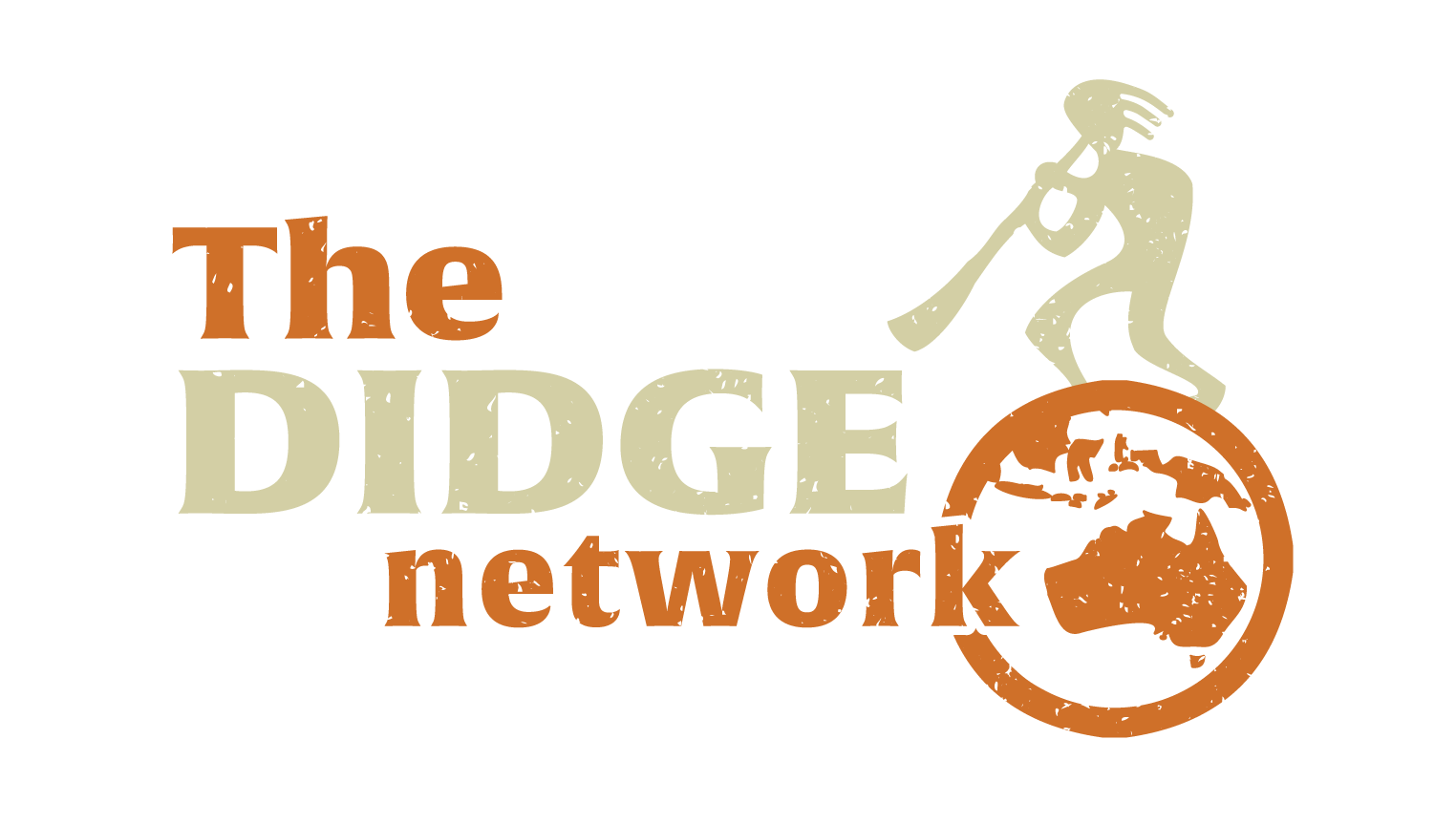
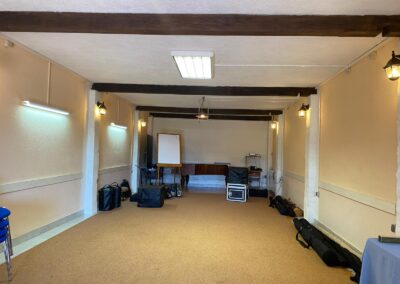
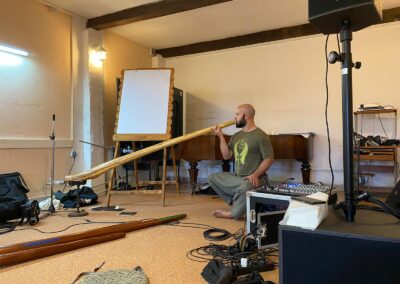
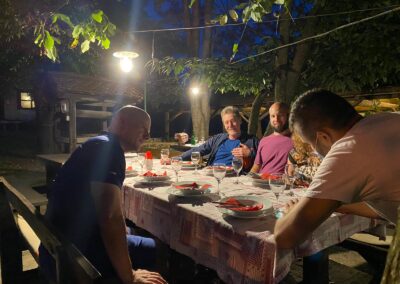
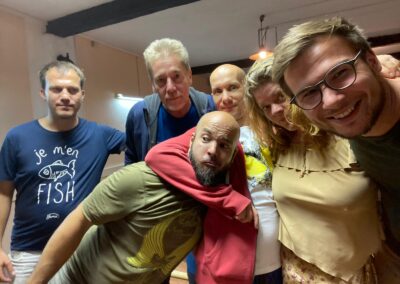
0 Comments